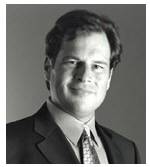What makes salesforce.com tick


In a brief on-camera interview, I asked Benioff what he views as his biggest challenges in becoming a developer platform for business and ERP applications, given that it is an area in which companies like Microsoft, Oracle (+PeopleSoft, J.D. Edwards) and SAP have dominated for decades.
He talked about delivering an on-demand platform, including tools, applications and user interfaces to access information. "Our advantage is that we are more likely to make customers successful than any other vendor," Benioff added.
How?will Salesforce.com make customers happier than competitors can? Other vendors--he named Microsoft, IBM and Siebel--are trapped in failed paradigms of the past. Microsoft, he said, is trapped in the client/server model, which was great in the early 1990s, but not appropriate for the 21st century. Salesforce.com represents the future of utility computing, he said.
Later, while chatting with my colleague Charlie Cooper and me, Benioff castigated Microsoft for failing to deliver the next wave of innovation. "The Blackberry, iPod and Salesforce.com exist because Microsoft let us down," Benioff said. I don't know why he isn't thanking Microsoft for being half asleep at the wheel or too busying trying to do too many things at once, including legal battles with large countries and land masses.
Benioff continued on his winding path toward answering my question, now pointing to Bill Gates' competitive streak. Gates, he said, has spoken about taking down Sergey Brin and Larry Page (Google co-founders)?like he took down Phillipe Kahn, founder and CEO of Borland who went up against Microsoft in the business applications space in the 1990s and lost. I haven't been able to locate the source of those remarks, but suffice it to say that Gates & Company will saddle up and try to crush any competitor in a market that Microsoft thinks it should "own."
If you look at how Microsoft addressed the Netscape browser situation with Internet Explorer (we are waiting to see how Microsoft deals with Firefox), Benioff can't get too comfortable thinking that Microsoft has become impotent, lacks the capability to innovate (not as a first mover) and won't turn its heavy weapons and checkbook against Salesforce.com if so moved. Benioff did spend the formative years of his career working for the ultimate high-tech competitor, Oracle CEO Larry Ellison, so he knows about how far his rhetoric can carry him.
Longer term. Salesforce.com is competing with the next generations of Microsoft Office and SAP Netweaver, not against Siebel or Microsoft CRM. Microsoft is trying to turn the rich (or fat) client Office suite into a business application development platform, with custom XML schema, InfoPath, more open APIs and other technology, such as a workflow engine, which is in development. But so far, we haven't heard much about turning Office into a hosted application service, in part because masses of customers aren't demanding it. That is a temporary situation, and Microsoft has to be looking at how to deliver?hybrid Office solutions that allow customers to have rich or thin (Web) clients, hosted applications, modular components and a single, Longhornish data model.
Despite Benioff's competitive jabs, he understands that he may have won the first round, but it's a ten-round (at least) fight. For the next round, however, the Salesforce.com ?No Software? slogan should be retired. It is supposed to mean that you don't buy software--you buy a service. That was fine for the first few years to get some attention, but it's now just a confusing artifact. To the end customer, Salesforce.com, NetSuite, RightNow, Siebel and others are offering hosted software applications and tools over the Internet. No software? Then what is the stuff running in the browser window operating on the data? And, how about a name change. The Salesforce.com name is as retro as Benioff claims Microsoft is. How about simplifying to sforce, which would still be different from the company's CRM stock ticker symbol.
But these are minor marketing issues. Finally answering my question on how to compete as a platform provider, Benioff said that what's important is "adding more subscriptions and growing with customers themselves." That means broadening far beyond out-of-the-box (or server farm) CRM and SFA to build an ecosystem teeming with applications that can be derived from the data, APIs, Web services and tools that Salesforce.com provides. If you are keeping score, it should be easy to see if Salesforce.com achieves success in subsequent rounds. The metrics are transparent--how many subscribers, customers sites, developers, partners and applications...